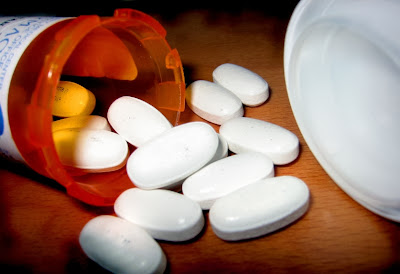No matter how it is that you get your news - the morning paper, the evening news programs, RSS feeds, or Twitter - you have most likely heard many reports of doctors under investigation for writing too many prescriptions for pain killers, meth labs being found and destroyed, and celebrities entering rehab for cocaine addiction.
Many Americans however, are unaware of the substance abuse epidemic sweeping our nation today. Substance abuse seems like a problem that exists in a far-away place, away from their neighborhood; it is certainly not a part of their own household. There is a lot of confusion about drug addiction. Many still believe the abuse of drugs is a choice, and simple willpower is all that is need to overcome the problem.
Due to scientific research, we now know that addiction is a brain disease. Addiction is considered a brain disease because drugs change the structure of the brain as well as how the brain works.
Why do some people become addicted while others experiment and then stop?
Susceptibility to addiction differs from person to person and has risk factors and protective factors, just as any other disease. The more risk factors a person has, the greater the chance that taking drugs will lead to addiction. Protective factors reduce the chance of a person becoming addicted.
Scientists estimate that genetics and environmental factors account for somewhere between 40 and 60 percent of a person's susceptibility. Adolescents are even more susceptible to drug addiction since their brains are not yet fully formed. Ethnicity, gender, and the presence of any mental disorders can influence the risk as well. The genetic causes of drug addiction involve multiple gene sequences. Science has yet to identify all of the genes involved.
Many environmental influences can increase, or decrease, a person's risk for drug addiction. Home and family is usually the most important. Family relationships, parental involvement, socioeconomic status, and conditions at home and in the surrounding neighborhood can greatly influence the course of drug abuse and addiction in teens.
School and peers are a key influence. A child with poor social skills may find it impossible to fit in with others, greatly increasing the risk for addiction. Stress and academic failures also increase susceptibility and risk. During adolescence, friends have the most influence. Adolescents' brains are still developing in the areas that govern decision-making, judgment, and self-control, making them especially susceptible to pressures from friends to try drugs.
Although taking drugs at any age can lead to addiction, research shows that the earlier drug use begins, the more likely it is to progress to more serious abuse followed by addiction. In addition, to early drug use the method of administration can greatly influence a person's vulnerability to addiction.
Because addiction is a disease it is treatable and most importantly it is preventable.
To learn more about substance abuse, addiction, and how to prevent your teen from using drugs, visit Secret Drug Test now.
